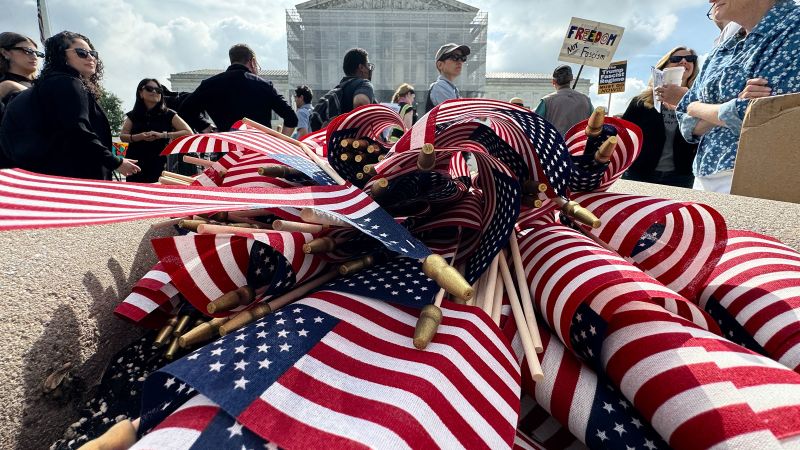Boston
CNN
—
A federal judge who previously blocked President Donald Trump’s effort to end birthright citizenship spent more than an hour Friday grappling with whether his nationwide injunction could stand after the Supreme Court curbed the ability of judges to issue such broad rulings.
US District Judge Leo Sorokin of the federal court in Boston made clear during a hearing that he intended to keep intact some of his earlier ruling against the birthright citizenship executive order issued by Trump on his first day back in office.
He grilled Trump administration lawyers and a group of Democratic attorneys general from more than a dozen states, the District of Columbia and several cities, on major questions about whether his nationwide injunction would still hold after the conservative Supreme Court instructed lower courts to take a second look at such rulings to ensure they weren’t overbroad.
Signed by Trump on January 20, the executive order, titled “PROTECTING THE MEANING AND VALUE OF AMERICAN CITIZENSHIP,” said that the federal government will not “issue documents recognizing United States citizenship” to any children born on American soil to parents who were in the country unlawfully or who were there lawfully but temporarily.
The Supreme Court said in its June 27 ruling that the administration cannot begin enforcing the order for 30 days, though the government is allowed to begin developing guidance on how the policy will be implemented.
The Justice Department pressed Sorokin, an appointee of former President Barack Obama, to issue an alternative injunction in which the policy would not be blocked at all, but instead allow children impacted by it to still enroll in federal benefit programs administered through the states.
Under that proposal, DOJ attorney Eric Hamilton explained, the federal government would be required to reimburse the states for the children’s benefits costs in the same way it always has, even though they would not technically be citizens otherwise permitted to receive the benefits.
“We think the court should modify the preliminary injunction or stay the preliminary injunction and it should at most be tailored to the injuries the plaintiffs are alleging, which are primarily financial injuries,” Hamilton said.
Sorokin was especially interested in getting into the specifics of how the federal government would be able to make such a system work, appearing at times to doubt its feasibility. “Certainly, workability is a factor,” the judge said at one point.
Later, the judge grilled Hamilton on that very issue, asking: “How do I know it’s workable, feasible, practicable?”
“We will comply with the court’s order,” Hamilton responded, adding that if the Trump administration had “concerns” about compliance it would raise them with the court.
“How do I know you can comply?” the judge responded. “It seems, based on the record I have before me, rather complicated.”
An attorney for New Jersey, one of the states suing over Trump’s order, made clear throughout the proceeding that he didn’t think any alternative injunction would give his state and the other challengers the broad ruling that would satisfy their case against the policy.

Former federal prosecutor breaks down what’s ‘not workable’ about Trump’s birthright citizenship ban
The lawyer, Shankar Duraiswamy, pointed to the administrative burdens that would befall the states under any ruling that doesn’t totally block implementation of Trump’s order since they would have to rework various systems to check the eligibility of children for benefit programs.
And he warned that a ruling blocking the order in the states and cities that brought the lawsuit but not the Republican-led states that have sued over it could lead to a surge in population growth in the plaintiff states, resulting in higher costs and additional burdens that would result from having to provide social services to those newly arrived families.
“Half measures are not warranted when enjoining a fragrantly unconstitutional executive action,” Duraiswamy argued.

